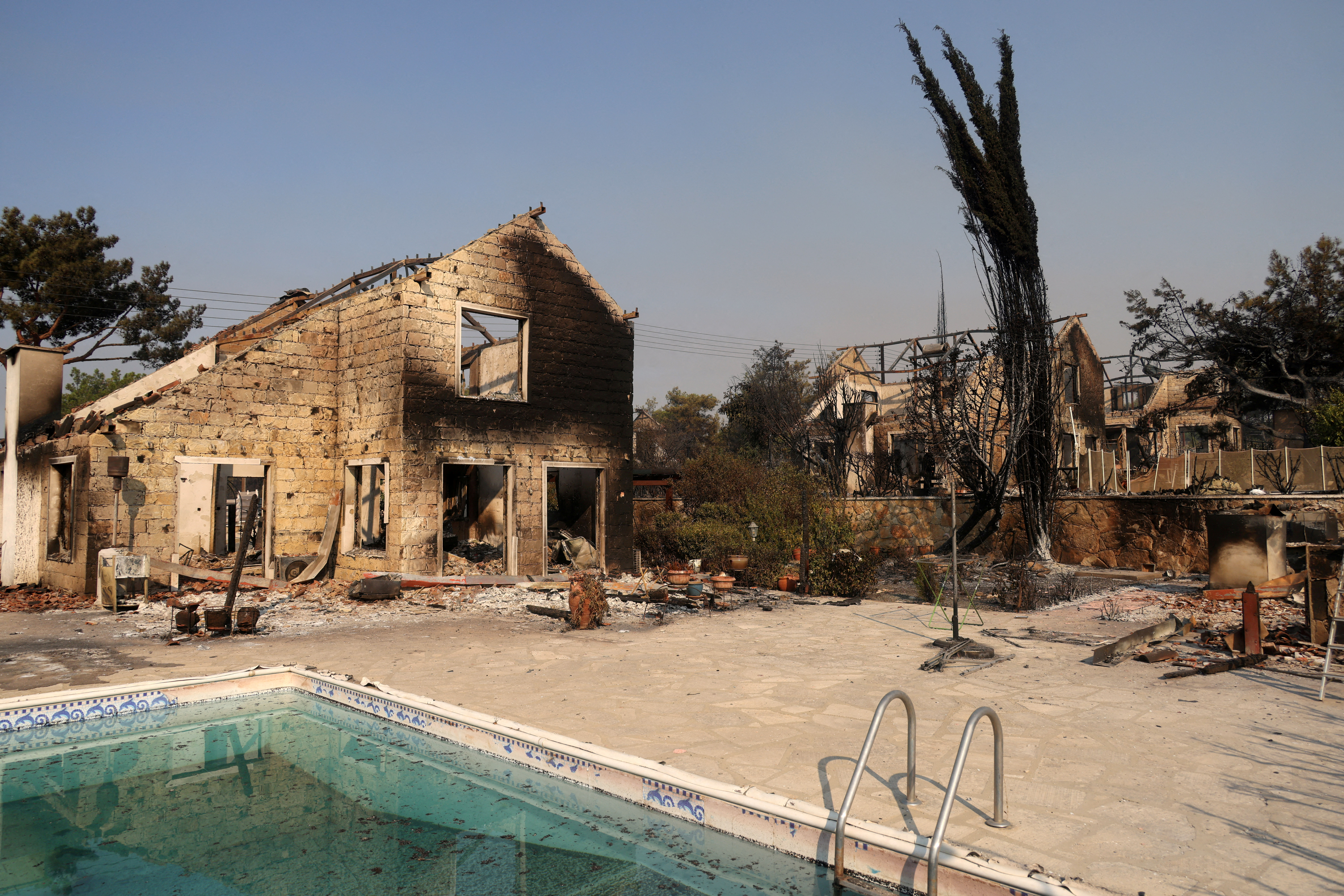President Nikos Christodoulides proudly announced on Wednesday that 95 per cent of families displaced by Limassol’s wildfire in July have now received a lump sum payment, and the general consensus is that compensation has indeed been prompt.
But there have been some hiccoughs along the way.
Christodoulides said teams deployed by the scientific and technical chamber (Etek) have assessed 615 of the 718 buildings which were partially or completely damaged by the fire, with compensation payments for those buildings now being made at market value rate. Among them were 532 homes.
The village of Souni was one of the villages worst affected by the fire, but some of its villagers have said they are yet to receive the compensation to which they believe they are entitled. In many cases, bureaucracy is to blame.
One resident, named Ken Pudney, told the Sunday Mail that while he had received the initial €10,000 worth of compensation promised by the government, his sister-in-law, who also lives in the village, had not.
Having contacted the government, she was told that she would get nothing as her husband had already received the money, with the authorities having erroneously believed the pair were married, on account of the fact they have the same surname and live in the same village.
He said that both he and his sister-in-law had made repeated attempts to rectify the mix-up, but made no progress for weeks on end, describing his experience with Cypriot bureaucracy as “like swimming through treacle”.
This was the case, he said, until MP Alexandra Attalides, who belongs to the Volt party, stepped in.
“Alexandra Attalides worked and saw to it that the process was put underway for my sister-in-law to receive the money,” he said, with the finance ministry said to have also issued an apology.
Karen Jaques, meanwhile, told the Sunday Mail she has made less progress in her efforts to receive compensation.
She said that after her house had been damaged in the fire, she had filed paperwork to the village council office for compensation in advance of the deadline, but that when her neighbours began to receive the money a few weeks later, she received nothing.
“We attempted to contact the village council about it and received no reply for days,” she said, before eventually contacting the district office, and getting “no answers” there, either.
Eventually, she said, progress was made after she visited the district office in person, with her application now said to be under evaluation, though she lamented the fact that “the fire was six weeks ago, now, and we have still not received anything”.
The Sunday Mail put the villagers’ issues to mukhtar Nikos Vikis, who said that some delays in the payment of compensation may be because some people were not initially entitled.
“There are some people who do not live here, who own properties here but live somewhere else, who as soon as they found out there was money going around, all of a sudden found themselves in Souni filing applications for compensation,” he said, clarifying he was not referring to the two residents named above.
He added that in “98 per cent of cases” of Souni residents who filed applications for compensation, the compensation was paid without delay, but there were “some cases where there were doubts”.
“For there to have been a delay in the payment, there would have had to have been something which either was not present or was not clear on the application,” he said, adding that he was aware of some cases which were still being examined.
“I am not a part of the government, but I must say that in general, the government has done a decent job here with regard to the compensation. Most people have been paid, and of course if it looks like someone is living abroad or in Mesa Yeitonia and claiming to live in Souni or if there is any other doubt about their paperwork, of course it will be examined,” he said.
He added, “this money which is being paid as compensation is taxpayers’ money at the end of the day, it be longs to all of us”.






Click here to change your cookie preferences